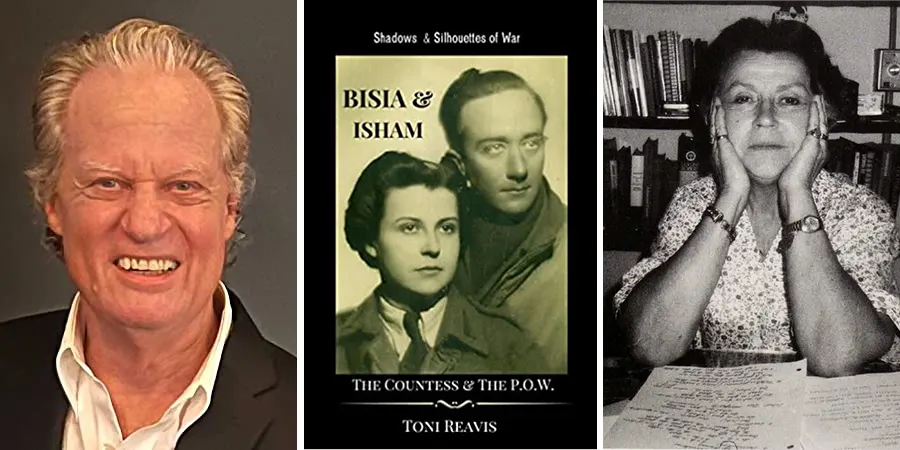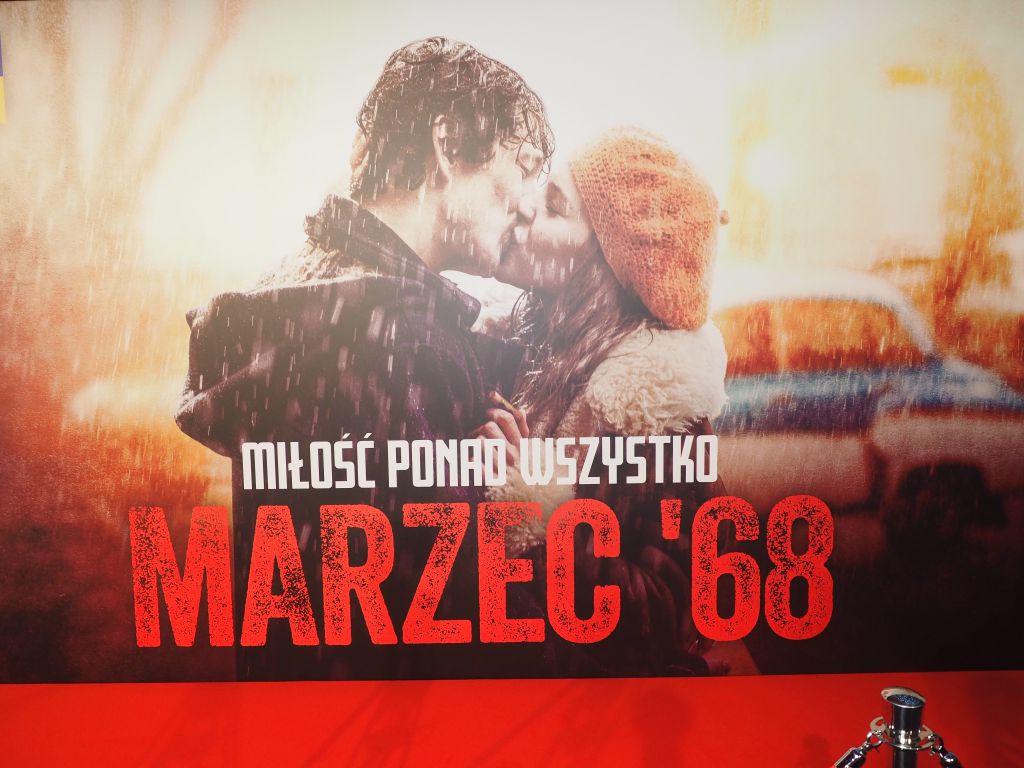Piotr Jaroszewicz was born on 8 October 1909 in Nieśwież. After finishing the secondary school in Jasło he started working as a teacher and headmaster in Garwolin. After the outbreak of World War II and the Nazi-Soviet alliance he moved to Soviet-occupied zone of Poland. It has been claimed that he was a headmaster in Pinsk gymnasia. However, on 10 July 1940 he was deported to Slobodka, Krasnoborski raion, Arkhangelsk, from Stolin together with his first wife Oksana Gregorevna (born in Salov/Calow 1914) and daughter Olila (born 1940). In 1943 he joined the 1st Polish Army of Gen. Zygmunt Berling. The following year he joined the Polish Workers Party and was promoted to deputy political commander of the 1st Army.
After the war he became the deputy minister of defense (1945–1950). Since 1956 he was the Polish ambassador to COMECON. At the same time between 1952 and 1970 he served as a deputy Prime Minister of Poland and briefly (1954–1956) as the minister of mining industry. Jaroszewicz was a member of the Central Committee of the Polish United Workers’ Party since its creation in 1948 and since 1964 he was also a member of the Political Bureau. From December 1970 until February 1980 he was the Prime Minister of Poland. The economical policies of Jaroszewicz and Edward Gierek led to a wave of protests in 1976 and 1980. After his failure in suppressing the Solidarity movement in 1980 he gave up all his posts and was expelled from the party the following year.
Piotr Jaroszewicz and his wife Alicja Solska were murdered on 1 September 1992 in mysterious circumstances in their house in Anin near Warsaw. The fate of the first wife and daughter is not known.
Jacek Kaczmarski
(March 22, 1957, Warsaw – April 10, 2004, Gdańsk) was a Polish singer, songwriter, poet and author.
Kaczmarski was a voice of the Solidarity trade union movement in 1980’s Poland, for his commitment to a free Poland, independent of Soviet rule. His songs criticized the ruling communist regime and appealed to the tradition of patriotic resistance within Poles. He remains best known for his protest songs on social and political subjects (“Mury” (Walls) based on “L’Estaca” by Lluís Llach, “Obława” (Wolf hunt (lit. Raid))). However, he was more a poet than a political singer, and his texts have not lost their relevance with the demise of the Soviet union and its communist bloc.
He made his debut in 1977 at the Student Song Festival, where he was awarded first prize for his work “Obława” (Wolf hunt (lit. Raid)) based on song “Охота на волков” by Vladimir Vysotsky. In 1980 he won Second prize at the Opole Song Festival for “Epitafium dla Włodzimierza Wysockiego” (Epitaph for Vladimir Vysotsky).
Kaczmarski was on tour in France when the martial law was declared in Poland in December 1981. He lived in exile until 1990. During these intervening years he gave concerts in western Europe, the United States, Canada, Australia, South Africa and Israel. From 1982 he worked as an editor and journalist with Radio Free Europe and hosted his own radio program, “Kwadrans Jacka Kaczmarskiego” (Fifteen Minutes with Jacek Kaczmarski).
After his return to Poland (following the Round Table negotiations that brought an end to communist rule) he toured the country with his friend and artist Zbigniew Łapiński. The tour was recorded and released as Live, and it achieved Gold album status in 2001. His other albums included “Mury” (Walls), “Nasza klasa” (Our Class), “Raj” (Paradise), “Muzeum” (Museum), “Pochwała łotrostwa” (In Praise of Villainy), “Wojna postu z karnawałem” (The War between Carnival and Lent). However, Kaczmarski was soon disillusioned by the developments in Poland after 1989 and eventually emigrated to Australia.
Kaczmarski was known not only for his politically motivated lyrics but also for his characteristically dynamic — even aggressive — classical guitar playing, and expressive performance style. His deep knowledge of not only his nation’s history but also of classical literature gave his songs a particularly deep and multi-layered resonance (e.g. “Powtórka z Odysei,” recalled Homer’s Odyssey, and “Lalka,” was a masterful strike at the heart of a riveting Polish novel). He often performed before contrastingly different audiences: groups of friends in their homes, campus venues, and large concert halls in Poland, the rest of Europe and America.
Kaczmarski was diagnosed with laryngeal cancer in 2002. He died in a hospital in Gdańsk in 2004.
Ryszard Kapuściński
March 4, 1932 – January 23, 2007) was a Polish journalist and writer whose dispatches in book form brought him a global reputation. Also a photographer and poet, he was born in Pińsk—now in Belarus—in the Kresy Wschodnie or eastern borderlands of the second Polish Republic, into poverty: he would say later that he felt at home in Africa as “food was scarce there too and everyone was also barefoot”. Kapuściński himself called his work “literary reportage”,and reportage d’auteur. In the English-speaking world, his genre is sometimes characterised as “magic journalism” (in counterpoint to magic realism), a term coined for him by Adam Hochschild in 1994.More recently, during the period since his death, scholars have indicated the similarities between Kapuściński’s style of writing and the traditional Polish form known as the gawęda szlachecka.[6] He was one of the top Polish writers most frequently translated into foreign languages, having been surpassed on this count only by the Nobel Prize-winner Wisława Szymborska.
Jerzy Kawalerowicz
(19 January 1922 – 27 December 2007) was a Polish film director.
Kawalerowicz was born in Gwoździec, Poland, one of the few Poles living in an ethnically-mixed Ukrainian and Jewish town. Kawalerowicz’s father’s family originated from Armenia, originally having the surname Kavalarian.Jerzy Kawalerowicz was noted for his powerful, detail-oriented imagery and the depth of ideas in his films. After working as an assistant director, he made his directorial debut with the 1951 film The Village Mill (Gromada). He was a leading figure in the Polish Film School, and his films Shadow (Cień, 1956) and Night Train (Pociąg, 1959) constitute some of that movement’s best work.
Other noted works by Kawalerowicz include Mother Joan of the Angels (Matka Joanna od aniolów, 1961) and a 1966 adaptation of Bolesław Prus’ historical novel, Pharaoh, which was nominated for the Academy Award for Best Foreign Language Film. In 1955 Kawalerowicz was appointed head of the prestigious KADR production unit. He held that position again in 1972. He always resisted pressures from the communist administration to produce propaganda films. His studio produced some of the best Polish films by Andrzej Wajda, Tadeusz Konwicki and Juliusz Machulski. In 1969 he was a member of the jury at the 6th Moscow International Film Festival. In 1975 he was a member of the jury at the 9th Moscow International Film Festival. In 1976 he was the head of the jury at the 26th Berlin International Film Festival.[6] Two years later, his film Death of a President won the Silver Bear for an outstanding artistic contribution at the 1978 festival. At the 11th Moscow International Film Festival he was a member of the jury and was awarded with the Honorable Prize for the contribution to cinema.
In 1983 he alienated some of his peers by signing communist government reports criticizing filmmakers aligned with Solidarity. He died on 27 December 2007 in Warsaw, Poland. His last film, Quo Vadis, had the largest budget for a Polish movie as of 2011.
Tadeusz Kotarbiński
Maciek Kozłowski
Ryszard Kukliński
Michał Kulesza
Józef Kulesza
Jacek Kuroń
Stefan Kuryłowicz
Lucjan Kydryński
Tadeusz Łomnicki
Jan Machulski
Julian Marchlewski
Ludwik Mikołajczyk
Waldemar Milewicz
Janusz Morgenstern
Zofia Nasierowska
Jerzy Ofierski
Gen. Sławomir Petelicki
Ewa Petelska
Barbara Lasocka Pszoniak
Zbigniew Religa
Stanisław Różewicz
Roman Rypson
Zbigniew Safjan
Elwira Seroczyńska
Wojciech Siemion
Stansław Skalski
Kamila Skolimowska
Jerzy Stefan Stawiński
Michał Sumiński
Józef Szaniawski
Stanisław Szymański
Teresa Torańska
Witold Woyda
Pomnik Żołnierzy WP Poległym w Kampanii Wrześniowej
Zbigniew Zapasiewicz
Maciej Zembaty
Marian Zieliński
Marian Garlicki
Ofiary katastrofy lotniczej PLL LOT 9 maja 1957
Ofiary Katastrofy Lotniczej PLL LOT w Marcu 1980
Ofiar Katastrofy Lotniczej pod Smoleńskiem 10 Kwietnia 2010
Ponary 1941-1944 – Pomnik Pamięci Tysięcy Polaków Zamordowanych w Ponarach k. Wilna
Groby żołnierzy poległych w wojnie polsko –rosyjskiej 1920r
Pomnik poległym w obronie Warszawy w 1920r
Zołnierze Armii Ludowej
Pomnik Batalionów Chłopskich 1939-1945
Pomnik Żołnierz Pierwszej Dywizji Piechoty im Tadeusz Kościuszki polgełym w wyzwoleniu Pragi
Pomnik Poległym pod Lenino
Bohaterom Powstania 1863 r.
Zesłańcom Sybiru




























